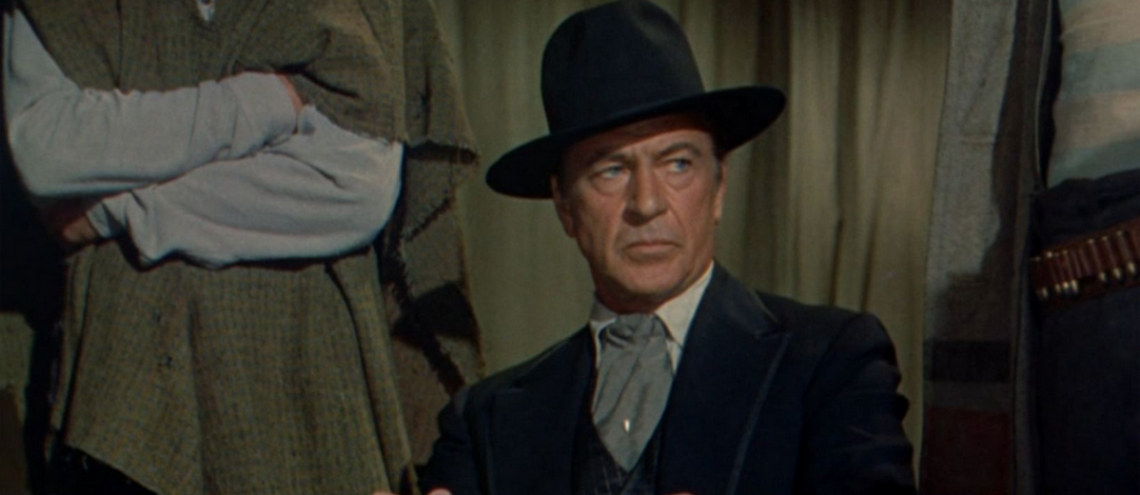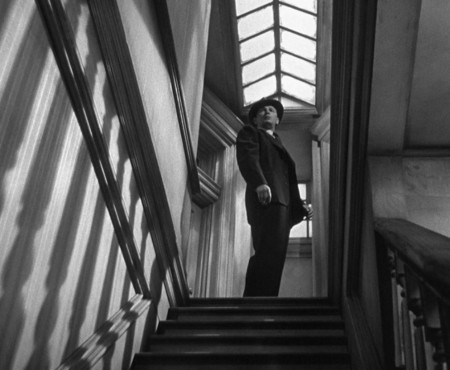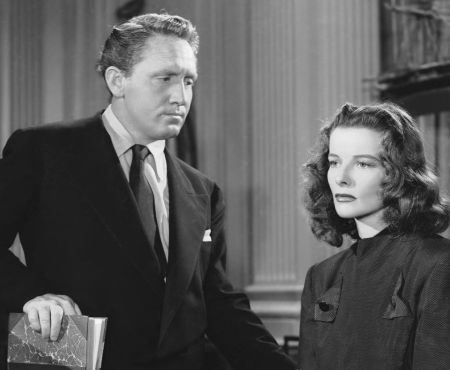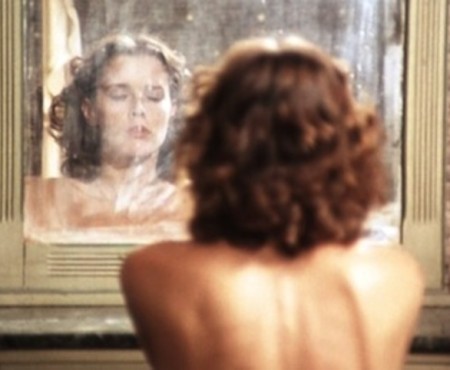How rich was the Western during the 1950s? So rich that even masterpieces like John Ford’s The Searchers and Howard Hawks’ Rio Bravo barely scratch the surface, so rich that more than half a century later we’re still mining for beauty. There’s the terse parable of High Noon, the death mask-like severity of The Gunfighter, the delirium of Johnny Guitar and the ferociousness of Run of the Arrow. There are Anthony Mann’s brutal dissections of the frontier hero, Budd Boetticher’s serene evocations of sagebrush transcendence, André de Toth’s thorny studies of betrayal… And then there’s Delmer Daves.
A screenwriter in the 1930s, Daves became a prolific director in the 1940s with offbeat projects like Pride of the Marines, Dark Passage and The Red House. With his penchant for visual lushness and respect for other cultures, he gravitated to Western stories beginning with 1950’s Broken Arrow, the first in a series of evocative views of moral quandaries and civilization-wilderness clashes. With the recent, heartening Criterion releases of Jubal and 3:10 to Yuma, Daves (who was championed by French film historians like Bertrand Tavernier and Jean-Pierre Coursodon) is due to be rediscovered.
Released in 1959, The Hanging Tree is the filmmaker’s final Western before he turned his attentions to melodramas. It begins with a caravan of covered wagons making their way through the woods of Montana, with the gnarled tree of the title silhouetted rather ominously against the area’s otherwise shimmering vegetation. Its blackened branches are ready for the noose, which, according to one of the traveling pioneers, “makes folks feel respectable.” The year is 1873 and the gold rush is at full speed; the town, Skull Creek, is really a prospecting camp duly dressed-up with some wooden façades. (Miners and prostitutes are settled in tents, anticipating the muddy, nascent communities in Sam Peckinpah’s Ride the High Country and Robert Altman’s McCabe & Mrs. Miller.)
Here, Doc Frail (Gary Cooper) is a devoted outsider, tending to patients in an isolated cabin perched on a mountain overlooking Skull Creek. Hailing from Illinois, the physician wields a stethoscope and revolver with equal ease, the paradoxical tools of the healer who wants to keep folks away. A friend mentions that his medical bag might be carrying his soul; less diplomatically, the raspy local religionist (George C. Scott, his proseletyzing palms just about sticking out of the CinemaScope frame) calls him the Devil.
Into his life come two strangers. Rune (Ben Piazza), a wounded youngster almost lynched for theft, takes refuge in Doc’s cabin and quickly finds himself blackmailed into being his helper. The apprenticeship theme is a common one during this period (Run for Cover, Man Without a Star, The Tin Star), and it’s done here with an unsentimentality that does justice to the twilight gravitas of Cooper’s persona. (A column of unshakable virtue in his early films, the actor came to project an arrestingly anxious quality in his later appearances.)
Even more important is Elizabeth (Maria Schell), a Swiss immigrant first seen sunburned and blinded after a stagecoach robbery. In sequences that recall John Garfield’s sightless ordeal in Pride of the Marines, Doc nurses her back to health. In a remarkable scene, Elizabeth has the bandages removed from her eyes and, struggling against the sensory overload of the world outside the sanctuary, has her vision restored literally on the edge of a precipice. Daves has a gift for moments like this—flashes of illumination marking private victories for troubled characters. His camerawork, filled with descending cranes and lateral pans, always seeks to integrate people to each other and to their surroundings, and Doc stubbornly resists such integration. Incendiary past events keep him aiding others only to then push them away when they get close: “I have no right to forget,” he finally confesses.
The three characters may suggest a makeshift family, but what’s fascinating about The Hanging Tree is the way it gradually becomes Elizabeth’s story, making her not a mere mediator between the male characters but a headstrong businesswoman determined to seize the American Dream herself. With the help of Rune and local prospector Frenchy (Karl Malden, modulating from comic boisterousness to sinister lechery), she launches a gold-mining venture; that their project is secretly funded by Doc enhances the story’s view of persevering, mysterious interconnectedness.
Arguably the most optimistic of Western directors, Daves is as aware as Ford of the frailty of order and the inexorability of violence: when the town celebrates the discovery of a new vein of gold, the raucous festivities swiftly darken into a devastating frenzy of greed and paranoia. As Doc gets a rope around his neck, Elizabeth steps in and, with a tremendously moving impulsive gesture, chooses the emotional over the materialistic. The three-character tableau that follows, contemplated by the tenderly receding camera, is worthy of a Harvey Dunn painting.




















